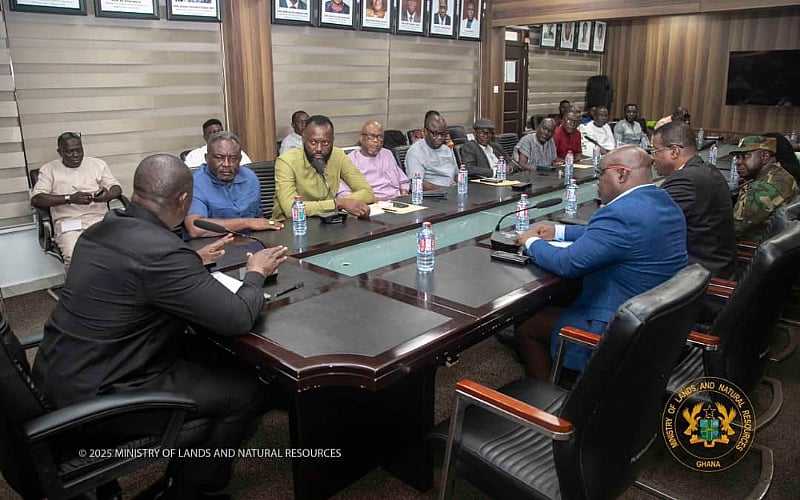The Ghanaian Ministry of Lands and Natural Resources, under the leadership of Minister Emmanuel Armah-Kofi Buah, has granted a deadline extension to small-scale miners to regularize their mining licenses. Originally set for an earlier date, the deadline has been pushed to the end of August 2025. This decision follows a formal petition from the Ghana National Association of Small-Scale Miners (GNASSM), citing challenges encountered during the licensing process and requesting more time to rectify identified irregularities. The extension reflects the Ministry’s commitment to a collaborative approach and acknowledges the importance of small-scale mining within the Ghanaian economy. This decision highlights the government’s efforts to balance regulatory enforcement with the needs of the mining community.
The impetus for the extension stems from a recent audit conducted by the Ministry, which flagged 902 small-scale mining licenses for various infractions. The identified issues range from incomplete documentation to potential non-compliance with existing regulations. Recognizing the potential impact of these irregularities on both the miners and the broader mining sector, the Ministry opted for engagement and facilitation over punitive action. By granting an extension, the government aims to provide small-scale miners with the necessary time and resources to rectify these issues, thereby ensuring their continued operation within the legal framework.
To streamline the regularization process and offer support to the miners, the Ministry has taken proactive steps to establish a dedicated Help Desk. Staffed by a three-member committee, this help desk serves as a centralized resource center where miners can seek assistance with their documentation, clarify queries related to the licensing process, and address any challenges they may face in meeting the regulatory requirements. This initiative underscores the Ministry’s commitment to facilitating compliance and fostering a supportive environment for small-scale miners to operate legally.
The Minister’s decision to extend the deadline and establish a dedicated Help Desk signifies a shift towards a more collaborative approach to mining regulation. Rather than imposing immediate sanctions or penalties, the government has chosen to engage with the small-scale mining community, offering support and guidance to ensure compliance. Minister Buah emphasizes that the extension is not intended as a punitive measure, but rather as an opportunity for constructive dialogue and collaboration between the Ministry, the Minerals Commission, and the miners themselves. This collaborative approach aims to create a more streamlined and effective licensing system that benefits all stakeholders.
Beyond addressing the immediate licensing concerns, the meeting between Minister Buah and the GNASSM also touched upon the government’s broader vision for the mining sector. Minister Buah reaffirmed the government’s commitment to the upcoming Cooperative Mining Scheme, highlighting its emphasis on community ownership and control. This scheme is designed to empower local communities by granting them greater control over mining activities within their territories, ensuring that the benefits of mining are distributed equitably and contribute to local development. Importantly, Minister Buah stressed that the scheme would incorporate stringent safeguards against political and private sector interference, ensuring transparency and accountability in its operation.
The response from the GNASSM to the government’s initiatives has been positive. Mr. Godwin Armah, the National Secretary of GNASSM, commended Minister Buah’s consultative approach, acknowledging the importance of open dialogue and collaboration in addressing the challenges facing the small-scale mining sector. He further reaffirmed the Association’s commitment to working hand-in-hand with the government to foster a sustainable and legally compliant small-scale mining industry. This mutual commitment to partnership bodes well for the future of the sector, signifying a shared understanding of the need for responsible mining practices and the potential for small-scale mining to contribute positively to the Ghanaian economy. The collaboration between the Ministry and the GNASSM represents a significant step towards achieving a more responsible and well-regulated mining industry, one that balances economic development with environmental protection and community well-being.


